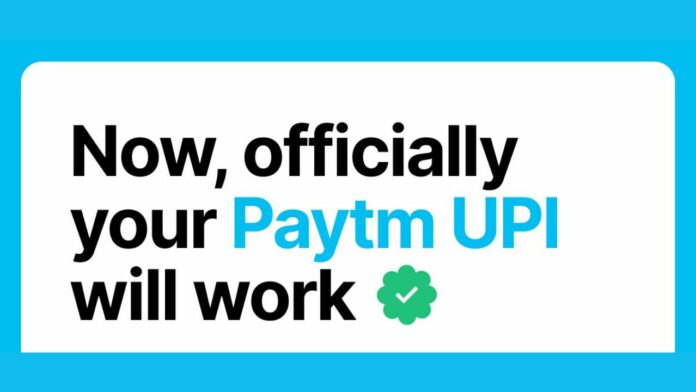One97 Communications Ltd (OCL), the parent company of Paytm, has been granted approval by the National Payments Corporation of India (NPCI) to operate as a Third-Party Application Provider (TPAP) in the Unified Payments Interface (UPI) ecosystem. This enables Paytm to continue functioning within the UPI system despite the closure of its Payments Bank.
What happened to Paytm in the past?
This development comes on the heels of the Reserve Bank of India’s (RBI) directive to halt most operations of Paytm Payments Bank due to persistent non-compliance issues. The RBI directed Paytm Payments Bank to suspend its primary banking services, leading to unrest among its users.
After March 15, 2024, you cannot deposit money into your account with Paytm Payments Bank. No credits or deposits other than interest, cashbacks, sweep-in from partner banks or refunds are allowed to be credited.
What is Third-party Application Provider?
Third-party application Provider, also called TPAP, is a service that works with banks to help you use UPI, which is a system for sending money quickly and easily in India. TPAPs make apps that let you do things like pay bills, buy things, or send money to friends. They’re essential because they make it easier for everyone to use digital payments. Think of TPAPs as the bridge between your bank’s app and the UPI system, helping you get things done without going to the bank. For instance, apps like PhonePe and Google Pay act as TPAP, and now, Paytm will be one too.
The approval for TPAP status ensures that Paytm can continue to offer UPI payment services seamlessly. As a TPAP, Paytm will now be able to provide UPI-compliant applications to end-users, facilitating a range of payment transactions. This includes mobile wallets, merchant apps, and other platforms utilizing UPI for payments.
Till now, Paytm’s UPI transactions were earlier being carried out through Paytm Payments Bank which has now been shut down. Four major banks—Axis Bank, HDFC Bank, State Bank of India, and YES Bank—have been designated as Payment System Provider (PSP) banks for OCL. Notably, YES Bank will also take on the role of merchant acquiring bank for existing and new UPI merchants associated with Paytm. In other words, for people using Paytm, nothing much will change. They can still send money and pay for things like before.
Read More: Top 5 Digital Banks Offering Better Interest Rates Than Paytm Payments Bank
What happens to those with an ‘@paytm’ UPI handle?
The “@Paytm” UPI handle was being handled by the Paytm Payments Bank. However, the handle will now be redirected to YES Bank, ensuring that existing users and merchants can continue their UPI transactions and AutoPay mandates without interruption. OCL has also been advised to expedite the migration of all existing handles and mandates to the new PSP banks.
This approval is a significant relief for Paytm, which faced operational uncertainties following the RBI’s crackdown. It’ll also reinstate consumers’ confidence in the platform knowing they can still use the service for their daily transactions without any interruptions.


